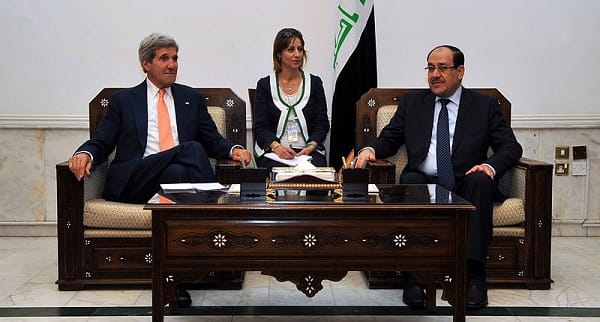Currently, clashes in Iraq between government forces and Islamic State in Iraq and Syria (ISIS) militants is in the north of the country, away from the most productive oil fields in the south. Iraqi oil exports, and global oil prices, have thus remained relatively unaffected. But there are still fears the violence could spill over. Will the Iraq crisis affect oil prices? How will this impact Asia?
Who is vulnerable?
Among Asian countries, analysts say Indonesia, India and Japan would be vulnerable to oil market disruptions. Although an OPEC member, Indonesia has been a net oil importer since 2006. Indonesia would likely see its current account deficit and fuel subsidy costs widen, in response to higher oil prices. India faces similar problems, and also has fuel subsidies. Meanwhile, although Japan does not import much, if any, Iraqi oil, it is currently heavily dependent on energy imports and would suffer from overall rise in global oil prices.
Compared to its neighbours, Singapore is better insulated against higher oil prices. That said, possible effects of an oil price spike on Singapore include higher transport costs, as petrol prices rise, as well as higher power bills, as electricity tariffs are tied to the price of fuel oil.
However, this is only a worst-case scenario. The situation in Iraq has not yet affected oil exports, and even if Iraqi supply is affected, it is likely Saudi Arabia would supply more oil, and governments would release strategic reserves, to minimise the global impact.
What about China?
There has been speculation that China in particular may be affected by the Iraqi crisis. Chinese state-owned firms have invested heavily in Iraq in recent years, and Iraq is currently China’s fifth-largest oil supplier. However, most of China’s power still comes from coal, not liquid fuels. Some estimates place Chinese infrastructure investments in Iraq at some US$10 billion (SGD$12.5 bn), with the majority in the oil industry – but this only represents a small percentage of China’s overall investments, worldwide.
According to some commentators, China should be playing a greater role in resolving the Iraqi crisis, given its economic stake in the country and China’s emerging presence as a global power. Comparisons have been drawn to the crisis in Libya in 2011, which endangered Chinese citizens working in the country. However, most published comments about China needing a larger security presence in the Middle East are from Americans. China seems to have little desire to intervene in other countries in the same fashion as the United States, especially when many Chinese blame the US for causing the Middle East’s present instability. Indeed, some in the Chinese media have hit back at the US press and think tank community for pressuring China to intervene.
Last week, a Chinese foreign ministry spokeswoman said fighting terrorism is a “common responsibility” and Iraqi stability is a “common interest”. Therefore the international community should support Iraq, and China is willing to provide what help it can. But China has not revealed what form this help might take. An article in the Global Times, a Chinese state-owned newspaper, notes that that China is currently dealing with maritime territorial disputes in Asia, and Beijing does not have the “energy to care about Iraq”.
Sources:
China Keeps a Close Eye on Oil Interests in Iraq [The New York Times, 17 Jun 2014]
Iraq Crisis Tests China’s Foreign Policy [The Diplomat, 17 Jun 2014]
Media urge China to ‘not interfere’ in Iraq [BBC News, 20 Jun 2014]
Photo Credit: US State Department (U.S. Secretary of State John Kerry, a State Department translator, and Iraqi Prime Minister Nouri al-Maliki on June 23, 2014)




